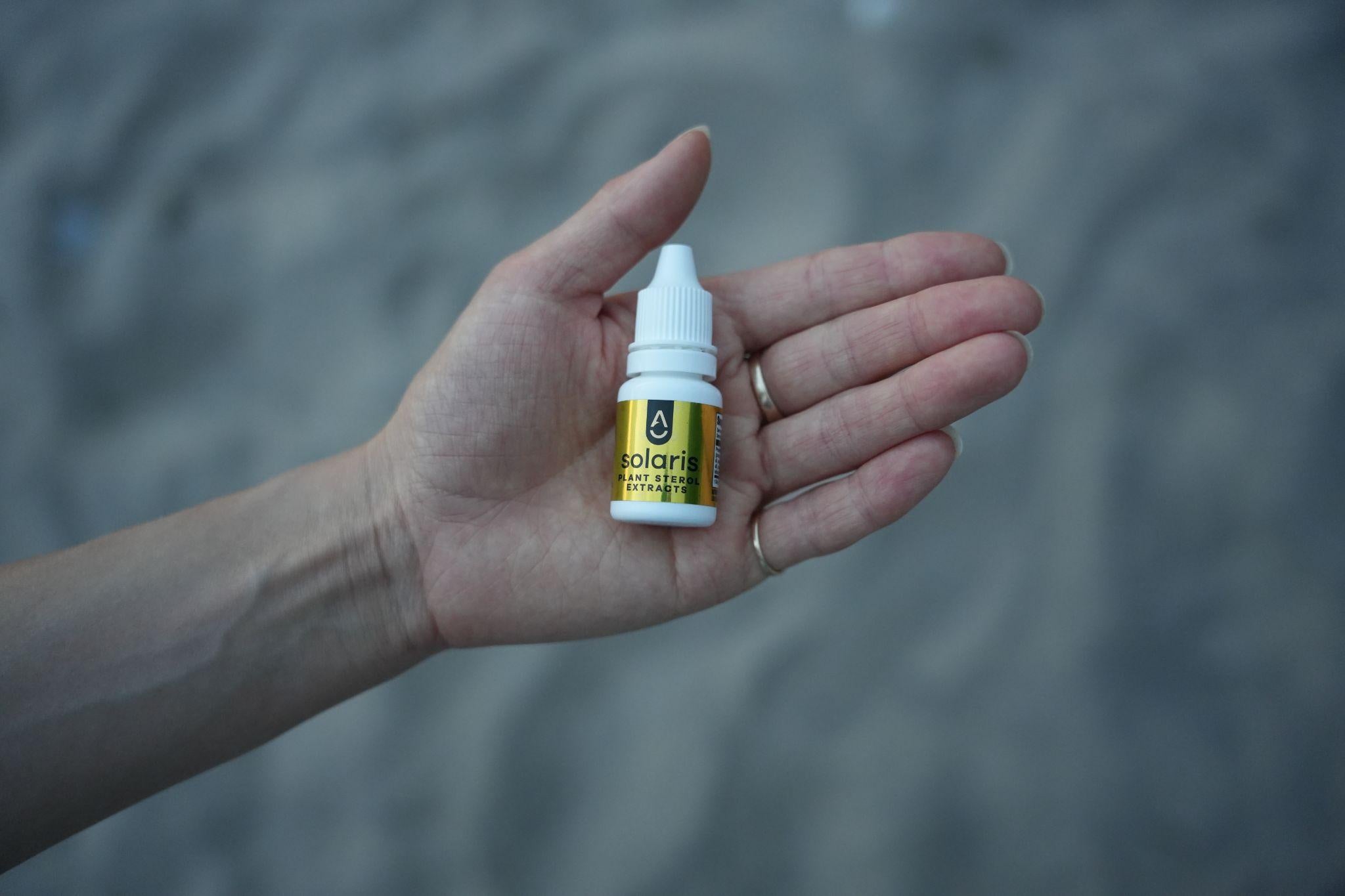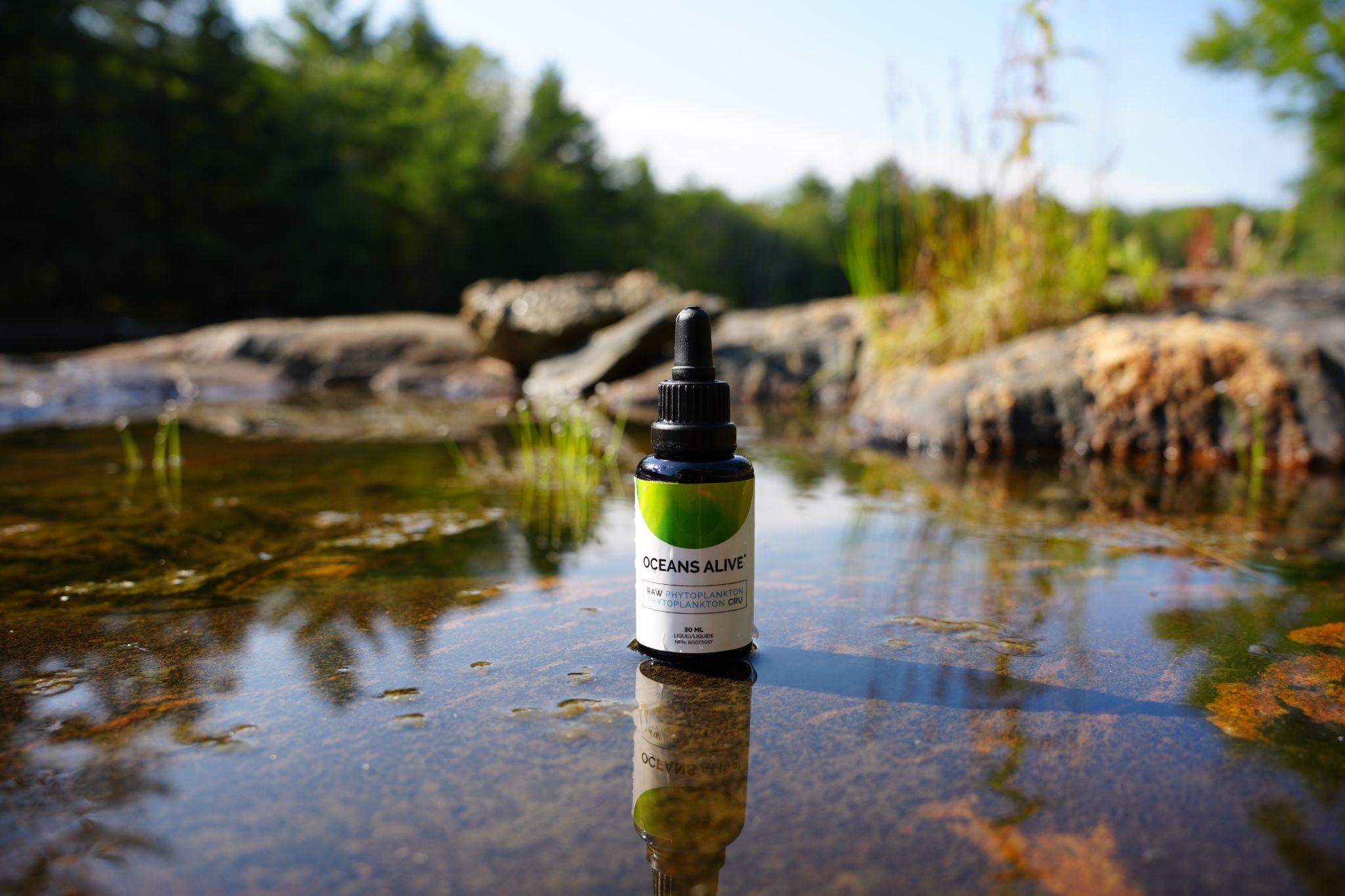
Have you ever experienced a state of mental fogginess, where it’s hard to concentrate, think clearly, and stay focused? This phenomenon, often called "brain fog," can be frustrating and makes even simple tasks a challenge. While various factors can contribute to brain fog, one potential culprit that is often overlooked is magnesium deficiency.
Magnesium, a vital mineral, is critical to brain health and cognitive function. In this article, we will explore the relationship between magnesium and brain fog. We’ll take a look at how you can use magnesium for brain fog, and finally answer the question “Does magnesium help with brain fog?”
What Exactly is “Brain Fog”?
"Brain fog" is a term used to describe a state of mental haziness or confusion where cognitive function is impaired. Brain fog is often characterized by symptoms such as difficulty concentrating, forgetfulness, decreased mental clarity, reduced ability to make decisions, and feeling mentally sluggish or slow.
Brain fog can affect your problem-solving, decision-making, and ability to remember facts or tasks. It can have a significant impact on daily life, affecting your work performance, academic achievements, and even personal relationships.
Can Magnesium Cause Brain Fog?
The exact cause of brain fog is not well understood, and it is believed that brain fog is usually caused by a variety of different factors. So, can magnesium cause brain fog? There’s no evidence to suggest that magnesium causes brain fog at all. In fact, it looks like the opposite is true - we’ll have more on that later.
Some of the factors that do seem to cause brain fog include sleep deprivation, stress, poor nutrition, hormonal imbalances, chronic illnesses, and certain medications.
Does Magnesium Help With Brain Fog?
Now that we’ve established that magnesium doesn’t cause brain fog, let’s discuss how it does exactly the opposite. Many people see positive results when they use magnesium for brain fog, so let’s take a look at exactly how does magnesium help with brain fog.
How Does Magnesium Help With Brain Fog?
Magnesium is involved in lots of different pathways and processes in the body and can help with brain fog through these key roles:
- Neurotransmitter regulation. Magnesium plays a critical role in the synthesis and release of neurotransmitters including serotonin, dopamine, and glutamate, which are involved in mood, memory, and cognitive function.
- Anti-inflammatory effects. Magnesium has anti-inflammatory properties that can help reduce neuroinflammation in the brain. Neuroinflammation can disrupt normal brain function and contribute to cognitive impairment and brain fog.
- Vasodilation and improved blood flow: Magnesium can help relax blood vessels and improve blood flow to the brain. This can increase the delivery of oxygen and nutrients to brain cells, supporting optimal brain function and potentially reducing brain fog.
Not only does magnesium help with brain fog through these roles, but it’s also involved in cortisol regulation, which is a stress hormone that’s been linked with brain fog.
What the Research Says About the Link Between Magnesium Deficiency and Brain Fog
There’s a lot of research in the magnesium deficiency brain fog area which suggests that a magnesium deficiency can cause brain fog. Recently, there has been an increased amount of research on brain fog, as it is a key symptom of Long Covid, which affects around 5% of the adult population.
One study even suggested that Long Covid (and the brain fog it brings) could be caused by magnesium deficiency, as magnesium plays an important role in the health and regulation of certain immune cells that fight Covid-19 infection.
Another study found that administering magnesium helped to improve learning and memory in Alzheimer’s disease, due to the important role of magnesium in the health and longevity of brain cells. It’s also been established that Alzheimer’s disease patients have lower levels of magnesium, further linking magnesium to memory and other cognitive functions.
What Causes Magnesium Deficiency?
There are lots of different factors that can cause magnesium deficiency, including:
- Diet. Processed foods, refined grains, and a diet high in sugar and unhealthy fats may be low in magnesium, leading to deficiency over time.
- Poor absorption. Even if your diet is high in magnesium, certain conditions can interfere with magnesium absorption in the gut. Gastrointestinal disorders such as Crohn's disease and celiac disease can impair magnesium absorption.
- Certain medications. Diuretics and some antibiotics may reduce magnesium absorption or increase magnesium excretion, leading to magnesium deficiency.
- Medical conditions. Uncontrolled diabetes, alcoholism, and kidney diseases, can lead to increased magnesium loss and cause a deficiency.
How to Use Magnesium for Brain Fog: Say Goodbye to Poor Focus For Good!
Using magnesium for brain fog is a great way to top up your body’s magnesium levels and start thinking more clearly. Not only does magnesium help with brain fog, but it can also improve your mood, help you sleep better, relieve aches and pains, and so much more. So, how exactly do you use magnesium for brain fog? Let’s dive into the details.
Which Magnesium is Good for Brain Fog?
Most people choose to take oral magnesium for brain fog, but this is not the best option. Oral magnesium is poorly absorbed in the gut and can lead to digestive issues like diarrhea and abdominal cramps. If you have a magnesium deficiency, it takes a long, long time to replenish your magnesium stores and reduce brain fog using oral magnesium.
Instead, topical magnesium, which can be applied directly to your skin, is the best way to take magnesium supplements. Not only can magnesium be absorbed through skin, but it’s absorbed much more efficiently and starts working immediately. Plus, topical magnesium doesn’t come with the unwanted side effects of oral supplements, it’s much easier on the body.
The type of magnesium you are using also matters. Many supplements contain magnesium in the form of magnesium chloride, but this is a difficult compound for the body to absorb. A lot of the magnesium goes to waste, meaning that you’re spending money on supplements that aren’t really doing anything for you.
On the other hand, magnesium chloride hexahydrate is absorbed far more efficiently, helping you to rapidly replenish your body’s magnesium stores. If you’re experiencing brain fog, the magnesium chloride hexahydrate benefits are far superior to regular magnesium chloride. So, the best magnesium for brain fog is something you can apply topically (to avoid the side effects of oral magnesium) that contains magnesium chloride hexahydrate so it can be easily absorbed by the body.
At Activation Products, our topical magnesium spray Ease is the best magnesium spray for brain fog. It can be conveniently sprayed onto the skin as often as needed, and contains pure magnesium chloride hexahydrate vs magnesium chloride, meaning that your body can really make the most of each spray of Ease.
Ease is absorbed through the skin within 90 seconds of spraying, and starts restoring your magnesium levels and fighting off brain fog right away. Plus, it’s formulated using pharmaceutical-grade magnesium and has no impurities, so it won’t leave your skin itchy or irritated like some other magnesium sprays.
Tips for Applying Magnesium Spray for Brain Fog
If you have a magnesium deficiency and brain fog, here’s what you need to know about using magnesium spray. You can use Ease at any time, but you’ll see more benefits of magnesium spray if you spray Ease regularly throughout the day. In general, we recommend 30-40 sprays of Ease per day. If you have restlessness or difficulty sleeping, many people also use Ease magnesium spray for restless legs by applying a few sprays to their calves or heels right before going to bed.
Besides brain fog, there are many other uses for magnesium spray. It can soothe the mind, help with muscle cramps or tightness, and many people also find magnesium spray for headaches works wonders. If you’re expecting, try Ease magnesium spray for pregnancy to reduce the symptoms of morning sickness.
Make sure you always apply Ease to clean, dry skin, and give it just a couple of minutes to soak into your skin before touching your skin with clothes or blankets, or getting your skin wet.
Improve Your Diet to Get in More Magnesium, Too
To fix your magnesium deficiency brain fog faster, you can use Ease along with a diet high in magnesium. Increase your intake of fresh leafy greens like kale, spinach, and collard greens. Whole grains, nuts, and seeds are all also good sources of magnesium. Don’t forget to avoid foods that can make it harder to absorb magnesium, like refined sugars, processed foods, and too much alcohol.
Additional Advice on Overcoming Brain Fog Besides Magnesium Supplements
Not only can magnesium cause brain fog if you have a deficiency, but other factors like stress, sleep deprivation, and too much time staring at screens can also play a role. You can fight brain fog by trying mindfulness exercises, yoga, and meditation, or reading a book before bed instead of watching TV. You can also try memory exercises and games like crosswords and card games to keep your mind sharp and overcome brain fog.
Bringing Our Conversation on Magnesium for Brain Fog to a Close
In this article, we’ve explained the link between magnesium deficiency and brain fog, and how you can use magnesium supplements to increase your body’s magnesium stores and fight brain fog. At Activation Products, our Ease magnesium spray offers a convenient, highly effective solution for treating brain fog that’s both easy on the body and fast-acting.
Find mental clarity and improve your focus, memory, and sharpness with Ease!












Benefits of Topical Magnesium Spray: Why You Need Ease in Your Life!
Can Oral Magnesium Products be Harmful?